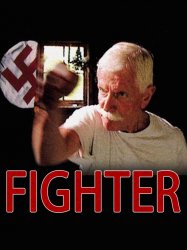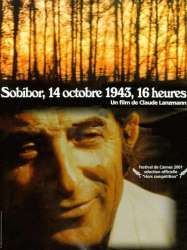Goodbye Holland is a film of genre Documentary directed by Willy Lindwer
Goodbye Holland (2004)

If you like this film, let us know!
Length 1h30
Directed by Willy Lindwer
Genres Documentary
Themes Films about racism, Films about religion, Documentary films about racism, Documentary films about law, Documentary films about war, Documentary films about historical events, Documentaire sur une personnalité, Documentary films about religion, Political films, Films about Jews and Judaism, Documentary films about World War II
Goodbye Holland is a 2004 documentary about the extermination of Dutch Jews during World War II. The film debunks the accepted notion that the Dutch were 'good' during the war, exposing how Dutch police and civil servants helped the Nazis implement massive deportations, which resulted in the death of 78 percent of the Jews in the Netherlands.
The documentary was made by Emmy Award winning director Willy Lindwer.
Comments
Leave comment :
Suggestions of similar film to Goodbye Holland
There are 2 films with the same director, 8968 with the same cinematographic genres, 12785 films with the same themes (including 60 films with the same 11 themes than Goodbye Holland), to have finally 70 suggestions of similar films.If you liked Goodbye Holland, you will probably like those similar films :

The Temple Mount Is Mine (2003)
, 52minutesDirected by Willy Lindwer
Themes Films set in Africa, Films about religion, Documentary films about law, Documentary films about war, Documentary films about historical events, Documentaire sur une personnalité, Documentary films about politics, Documentary films about religion, Political films, Films about Jews and Judaism

Yitzhak Rabin: a Biography (2004)
, 1h40Directed by Willy Lindwer
Origin Israel
Themes Films about religion, Documentary films about historical events, Documentaire sur une personnalité, Documentary films about politics, Documentary films about religion, Political films, Films about Jews and Judaism

Fighter (2000)
Directed by Amir Bar-Lev
Genres Documentary
Themes Films about racism, Films about religion, Documentary films about racism, Documentary films about law, Documentary films about war, Documentary films about historical events, Documentaire sur une personnalité, Documentary films about religion, Political films, Films about Jews and Judaism, Documentary films about World War II
Rating73%





 , 2h2
, 2h2Origin USA
Genres War, Documentary, Historical
Themes Films about children, Films about immigration, Films about racism, Films about religion, Documentary films about racism, Documentary films about law, Documentary films about war, Documentary films about historical events, Documentaire sur une personnalité, Documentary films about religion, Political films, Films about Jews and Judaism, Documentary films about World War II
Actors Judi Dench
Rating76%





Quelques mois avant la Seconde Guerre mondiale, une extraordinaire opération de sauvetage a arraché 10 000 enfants et adolescents juifs au régime nazi. Rapatriés en Grande-Bretagne pour être adoptés, ils durent tisser de nouveaux liens familiaux, supporter les bombardements pour certains, aller libérer leurs propres parents restés en Allemagne. Ils ont tous d'inoubliables histoires à raconter dans ce documentaire.

Shadows of Memory (2000)
, 43minutesGenres Documentary
Themes Films about racism, Films about religion, Documentary films about racism, Documentary films about law, Documentary films about war, Documentary films about historical events, Documentaire sur une personnalité, Documentary films about religion, Political films, Films about Jews and Judaism, Documentary films about World War II
 , 1h35
, 1h35Directed by Claude Lanzmann
Origin France
Genres Documentary
Themes Films about racism, Films about religion, Documentary films about racism, Documentary films about law, Documentary films about war, Documentary films about historical events, Documentaire sur une personnalité, Documentary films about religion, Political films, Films about Jews and Judaism, Documentary films about World War II
Actors Claude Lanzmann
Rating73%





Sobibor, 14 octobre 1943, 16 heures : lieu, heure, jour, mois et année de la seule révolte réussie d'un camp d'extermination nazie en Pologne. 365 prisonniers parvinrent à s'évader, mais seuls 47 d'entre eux survécurent aux atrocités de la guerre. Claude Lanzmann a rencontré Yehuda Lerner pendant le tournage de Shoah, à Jérusalem en 1979. Dans ce documentaire, ce dernier s'est confié au réalisateur.
 , 1h27
, 1h27Genres War, Documentary
Themes Films about racism, Films about religion, Documentary films about racism, Documentary films about law, Documentary films about war, Documentary films about historical events, Documentaire sur une personnalité, Documentary films about politics, Documentary films about religion, Political films, Films about Jews and Judaism, Documentary films about World War II
Rating72%






Prisoner of Paradise (2002)
, 1h36Directed by Malcolm Clarke
Origin USA
Genres Documentary
Themes Films about films, Films about racism, Films about religion, Documentary films about business, Documentary films about the film industry, Documentary films about racism, Documentary films about law, Documentary films about war, Documentary films about historical events, Documentaire sur une personnalité, Documentary films about religion, Political films, Films about Jews and Judaism, Documentary films about World War II, Documentary films about films
Actors Ian Holm, Renée Saint-Cyr, Hans Albers, Marlene Dietrich, Kurt Gerron, Peter Lorre
Rating74%






Luboml: My Heart Remembers (2003)
, 57minutesGenres Documentary
Themes Films about racism, Films about religion, Documentary films about racism, Documentary films about law, Documentary films about war, Documentary films about historical events, Documentaire sur une personnalité, Documentary films about religion, Political films, Films about Jews and Judaism, Documentary films about World War II

Marion's Triumph (2003)
, 50minutesGenres Documentary
Themes Films about children, Films about racism, Films about religion, Documentary films about racism, Documentary films about law, Documentary films about war, Documentary films about historical events, Documentaire sur une personnalité, Documentary films about religion, Political films, Films about Jews and Judaism, Documentary films about World War II
Actors Debra Messing
 Connection
Connection